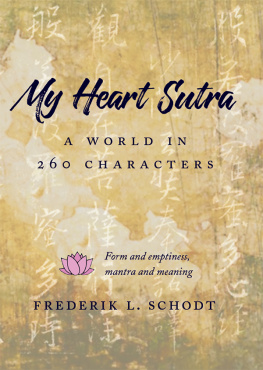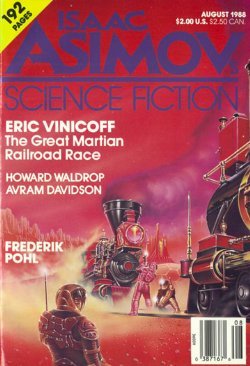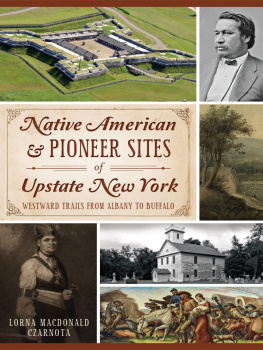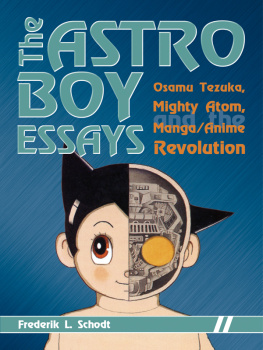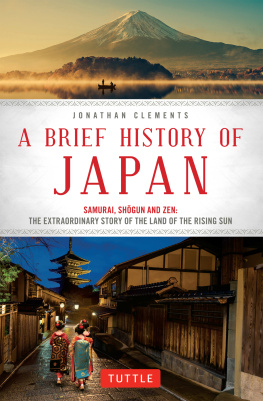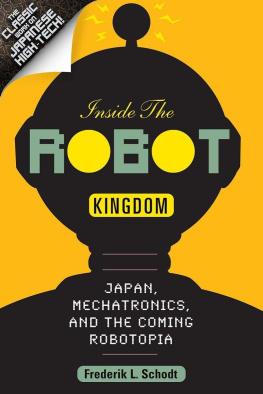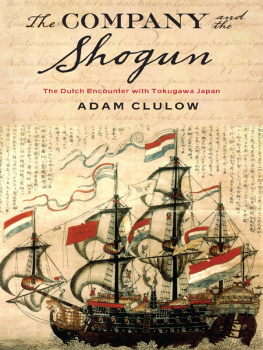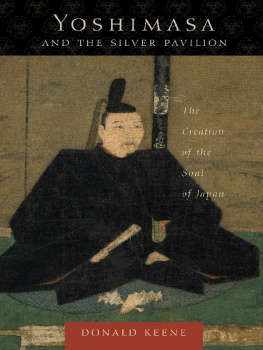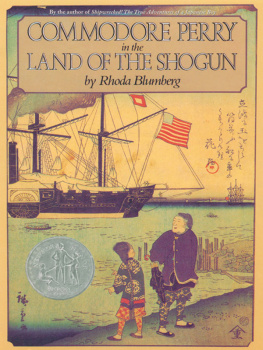Frederik L. Schodt - Native American in the Land of the Shogun: Ranald MacDonald and the Opening of Japan
Here you can read online Frederik L. Schodt - Native American in the Land of the Shogun: Ranald MacDonald and the Opening of Japan full text of the book (entire story) in english for free. Download pdf and epub, get meaning, cover and reviews about this ebook. year: 2003, publisher: Stone Bridge Press, genre: Non-fiction. Description of the work, (preface) as well as reviews are available. Best literature library LitArk.com created for fans of good reading and offers a wide selection of genres:
Romance novel
Science fiction
Adventure
Detective
Science
History
Home and family
Prose
Art
Politics
Computer
Non-fiction
Religion
Business
Children
Humor
Choose a favorite category and find really read worthwhile books. Enjoy immersion in the world of imagination, feel the emotions of the characters or learn something new for yourself, make an fascinating discovery.

- Book:Native American in the Land of the Shogun: Ranald MacDonald and the Opening of Japan
- Author:
- Publisher:Stone Bridge Press
- Genre:
- Year:2003
- Rating:5 / 5
- Favourites:Add to favourites
- Your mark:
- 100
- 1
- 2
- 3
- 4
- 5
Native American in the Land of the Shogun: Ranald MacDonald and the Opening of Japan: summary, description and annotation
We offer to read an annotation, description, summary or preface (depends on what the author of the book "Native American in the Land of the Shogun: Ranald MacDonald and the Opening of Japan" wrote himself). If you haven't found the necessary information about the book — write in the comments, we will try to find it.
Native American in the Land of the Shogun: Ranald MacDonald and the Opening of Japan — read online for free the complete book (whole text) full work
Below is the text of the book, divided by pages. System saving the place of the last page read, allows you to conveniently read the book "Native American in the Land of the Shogun: Ranald MacDonald and the Opening of Japan" online for free, without having to search again every time where you left off. Put a bookmark, and you can go to the page where you finished reading at any time.
Font size:
Interval:
Bookmark:

NATIVE AMERICAN
in the LAND of the
SHOGUN
Ranald MacDonald
and the Opening of Japan
FREDERIK L. SCHODT
Stone Bridge Press Berkeley, California
Published by
Stone Bridge Press, P.O. Box 8208, Berkeley, CA 94707
TEL. 510-524-8732
Publication of this book was generously assisted by a grant from the Suntory Foundation.
The publisher would like to thank the Hudsons Bay Company for permission to reproduce its trademark on page 85.
Cover and jacket design by Linda Ronan. Chinook Tribe logo by Tony A. Johnson, used with permission of the Chinook Indian Tribe. Background text from MacDonalds Nagasaki deposition, used with permission of the Matsuki Collection, Kysh University. Image of MacDonald from the Ranald MacDonald monument in Nagasaki, sculpted by Kazukuni Yamazaki.
Credits and copyright notices accompany their images throughout.
Text 2003 Frederik L. Schodt.
All rights reserved.
No part of this book may be reproduced in any form without permssion from the publisher.
LIBRARY OF CONGRESS CATALOGING-IN-PUBLICATION DATA
Schodt, Frederik L., 1950
Native American in the land of the shogun: Ranald MacDonald and the opening of Japan / Frederik L. Schodt.
p. cm.
ISBN 1-880656-78-7 (pb); 1-880656-78-8 (cb).
1. MacDonald, Ranald, 18241894. 2. PioneersColumbia River ValleyBiography. 3. Adventure and adventurersPacific AreaBiography. 4. JapanDescription and travel. 5. AmericansJapanHistory19th century. I. Title.
F853.S38 2003
915.20425092dc21
2003003856
To
Masakatsu Tomita
(194996)
Contents
List of Illustrations
Maps
Introduction
T his is a book about a man who did an extraordinary thing, and then fell through the cracks of history. Ranald MacDonald was of Chinook Indian and Scottish origin, born at the mouth of the Columbia River. In 1848, at the age of twenty-four, he risked his life to go to faraway, feudal Japan, which had rigid policies prohibiting contact with foreigners. How he conceived of and executed his adventure, and what it means to us today, is the subject of this book.
I first learned of MacDonald around 1990. I was doing research for a book later dedicated to him, titled America and the Four Japans: Friend, Foe, Model, Mirror, about the convoluted nature of U.S.-Japan relations. After coming across a brief mention of him, I went to my local public library and discovered a dusty, original-edition copy of what is regarded as his autobiographyRanald MacDonald, edited by William S. Lewis and Naojir Murakami and published by the Eastern Washington State Historical Society in 1923.
Having spent most of my adult life working with Japan, I was amazed that I had never before heard of such an interesting personthe first North American to go to Japan alone, of his own volition. But I wasnt the only one. Most people I then knew had never heard of him either, even if they were experts in Japanese history. I felt as though I had stumbled across a secret, lost history.
Every book I have written has been a personal odyssey of sorts, but this one has been the longest of all, requiring twelve years from conception to completion. It became something of an obsession, requiring multiple trips around the United States, Canada, and Japan to visit the places that MacDonald lived or visited. It meant long hours in archives and libraries, reading books and newspapers and musty old letters and records, and staring bleary-eyed at roll upon roll of scratchy microfilm. And it involved talking and corresponding with innumerable people.
In the process, I discovered that there were quite a few others like me, people who had also discovered MacDonald and felt his story resonated with them on some deep personal level. Some had even formed tiny Friends of MacDonald societies in both the United States and Japan to preserve his memory and encourage awareness of him. Moreover, I found thatwhile there were many mysteries surrounding MacDonalds lifefor an individual born in 1824 and unaffiliated with any organization, he is remarkably well documented, in English, Japanese, and Dutch primary source materials. There is also a considerable body of work about MacDonald written after his death, in the form of articles and books in both English and Japanese. And yet MacDonald remains an extremely marginal figure in orthodox histories.
Which raises the question, why write another book on someone who has failed to generate sustained interest? The simple and selfish answer is that I think MacDonald should be much better known. The more complex answer is that new information on his life is now available, and it is possible to view his life and his adventure in a broader context.
The story of Ranald MacDonald, as readers will discover, is an extremely tangled one, in need of a renewed effort to sort myth and speculation from fact. But in doing so, it may be possible to achieve something larger. Most recorded histories are an attempt to make sense of an infinitely complex past. They are assembled from available information, and may change radically as our understanding and needs change. By re-examining MacDonalds story, we can also enjoy a new view of early connections between North America and Japan, and a new view of the nineteenth-century world.
* * *
Before plunging into this book, a few words are in order about what it is about, and what it is not about, as well as a few housekeeping details.
Since this book is mainly about MacDonalds Japan adventure, some readers may be disappointed to find that I have glossed over his years in Australia (about which little is yet known) and his later activities in British Columbia (about which quite a bit is known). Instead, I have tried to provide more detail on the environments that helped propel him on his course in life, and the context in which his adventure occurred.
The temptation to speculate about gaps in our knowledge of MacDonalds life is enormous. More than a few writers have tripped by relying too heavily on his posthumously published autobiography, the 1923 Ranald MacDonald. Often regarded as the bible on him because it contains what is presented as his own writing (as well as invaluable supplementary information), it contains significant errors and can be quite misleading.
This book also makes frequent references to MacDonalds autobiography, but only with great care. To understand the context of the statements in it and to evaluate their accuracy, wherever possible I have done a type of historical triangulation, using other contemporary and primary sources, and making comparisons with earlier drafts of his manuscript (copies of which survive in the Oregon Historical Society in Portland, the Eastern Washington Historical Society in Spokane, and the British Columbia Archives in Victoria, B.C.). I refer to MacDonalds story of his adventure to Japan as the Narrative, which encompasses all drafts or versions that survive of his story, with endnotes identifying the source. When specifically referring to the version included in the 1923 book edited by Lewis and Murakami, I refer to it as the posthumously published Narrative, or the published autobiography.
On a more mundane level, quoted material has been reproduced verbatim. Readers will note occasional variations in the spellings and punctuation of names and places in quotations and in the text, the consequence of writers at that time in history writing without unified or standardized spellings. This occasionally extends even to the names of the most central parties in the story. MacDonald and his half-siblings, for example, generally spelled their surname with a Mac instead of their fathers Mc. And as most readers will by now also have deduced, Ranald MacDonalds name is spelled differently from that of a similar-sounding mascot of a certain famous fast-food chain; in fact, the two have absolutely nothing in common.
Font size:
Interval:
Bookmark:
Similar books «Native American in the Land of the Shogun: Ranald MacDonald and the Opening of Japan»
Look at similar books to Native American in the Land of the Shogun: Ranald MacDonald and the Opening of Japan. We have selected literature similar in name and meaning in the hope of providing readers with more options to find new, interesting, not yet read works.
Discussion, reviews of the book Native American in the Land of the Shogun: Ranald MacDonald and the Opening of Japan and just readers' own opinions. Leave your comments, write what you think about the work, its meaning or the main characters. Specify what exactly you liked and what you didn't like, and why you think so.

